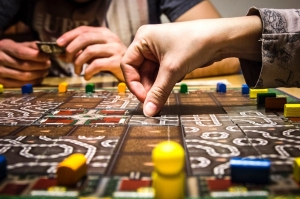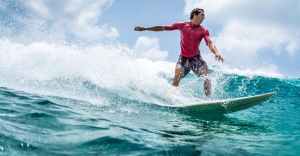The question of whether golf should be an Olympic sport has sparked debates and discussions among enthusiasts and athletes alike. Understanding the criteria and considerations behind a sport's inclusion in the prestigious Olympic Games is crucial to understanding and engaging in this hot-button debate.
From golf's historical presence in the Olympics to its recent reintroduction, exploring the evolution of golf's Olympic status sheds light on the sport's journey and significance on the global stage.
Golf in the Olympics
Golf's journey within the Olympic Games dates back to the early 20th century when it made sporadic appearances before being dropped from the program. The sport was part of the Olympics in 1900 and 1904 and showcased individual and team events. Despite its initial presence, golf faced a prolonged absence from the Olympic stage due to various factors, including limited participation and logistical challenges.
The sport's reintroduction in the 2016 Rio Olympics marked a significant milestone, with both men's and women's competitions included. Understanding the historical context of golf's Olympic participation provides valuable insights into the sport's evolution and its players' enduring desire for recognition on the global sporting platform.
Criteria for Olympic Sports
For a sport to be considered for the Olympic Games, it must adhere to specific criteria established by the International Olympic Committee (IOC). These criteria typically include global popularity, gender equality, adherence to the Olympic values of fair play and respect, and the ability to contribute positively to the overall Olympic program.
Also, the sport should have a governing body that is recognized by the IOC to ensure proper regulation and organization at the international level. While traditional Olympic sports like athletics and swimming easily meet these criteria, newer or niche sports must demonstrate their ability to align with the Olympic ideals to secure a place in the prestigious event.
Golf's Return to the Olympics
After a lengthy hiatus, golf triumphantly returned to the Olympic program in 2016 at the Rio Games. The reintroduction was met with enthusiasm from players, fans, and officials, marking a significant milestone for the sport's global recognition.
Both men's and women's competitions were included, which displayed the sport's commitment to gender equality in Olympic golf. The return of golf to the Olympics provided athletes with a prestigious platform to compete and helped elevate the sport's profile and attract new audiences worldwide.
The Debate: Pros and Cons of Golf in the Olympics
Take a few golf lessons and it's clear that this sport is more than just golf carts and country clubs — but why should it be an Olympic sport?
One of the primary advantages of golf being an Olympic sport is the heightened exposure and prestige it brings to the game. The Olympics provide a global platform for golfers to showcase their skills and compete at the highest level, attracting new fans and participants to the sport. Also, Olympic golf events offer athletes a special opportunity to represent their countries, fostering a sense of national pride and unity among competitors.
On the other hand, critics argue that golf's place in the Olympics may detract from the traditional emphasis on national representation and amateurism. Some contend that the professional nature of modern golf, with its lucrative tours and sponsorships, dilutes the Olympic amateur spirit. What's more, concerns have been raised about the format and scheduling of golf events within the crowded Olympic program, potentially overshadowing other sports and disciplines.
Despite these criticisms, proponents of golf in the Olympics highlight the sport's ability to attract a diverse audience and promote inclusivity within the Games. By featuring golf alongside other traditional and non-traditional sports, the Olympics embrace the diversity of athletic pursuits and cater to a wide range of interests among spectators and participants.
Ultimately, the debate surrounding golf's Olympic status reflects the ongoing dialogue about sports' evolving nature and place in the modern Olympic movement.
The Future of Golf in the Olympics
As golf continues to evolve, its future remains a topic of interest and speculation. The sport's ongoing presence in the Games hinges on factors such as global participation, viewership, and adherence to Olympic values. Embracing innovation, inclusivity, and sustainability will be crucial for golf to maintain its place in the Olympic program.
Swinging Towards Gold
The debate surrounding golf's status as an Olympic sport underscores the complex interplay between tradition, modernity, and inclusivity in the world of sports.
Whether golf remains a fixture in the Olympic Games or faces challenges ahead, its trajectory reflects the broader narrative of athletic competition and cultural significance on the international stage. By meeting the Olympic criteria, golf's presence in the Olympics continues to shape and be shaped by the landscape of global sportsmanship and excellence.






